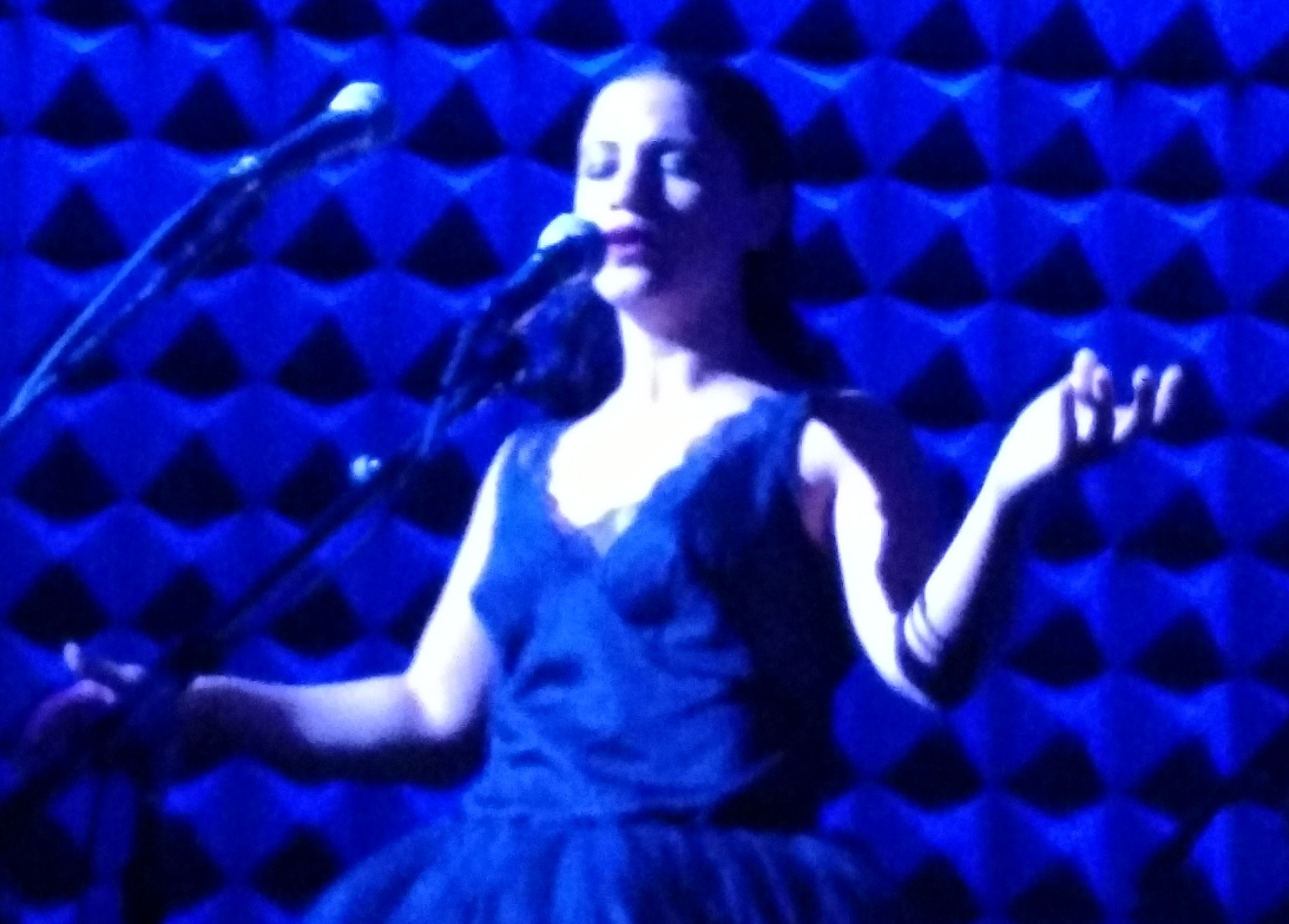The Tunisian artist Emel Mathlouthi released her new album at Joe’s Pub in February and sings again in New York at (le) poisson rouge on May 6. The collection is called ENSEN, which means “human” in Arabic, and it paints a sonic picture of how it feels to be so in the world. To read the lyrics alone, in English, as I have done since the release, is both revealing and deceptive. At face value, they imply a view of the world on the precipice of despair, with relief hoped for (at best) but repeatedly snatched away. This is not what it feels like to hear her, which is an experience of liberation. The painful undercurrent is vital to the freedom she insists on and grants, through her music, to us. She has a tragic sense of life, in the vein of Unamuno, which is that a life well-lived deserves better than its fate.
The first track sets the tone. The title is “Instant”, but it is sung in Arabic (or, I assume, its Tunisian variant). She sings that “at this instant” her grief is unimaginable, that she sobs alone, her voice unable to evoke the pain she feels, that she stands, ironically silent and unable to sing, “at” – the phrase is repeated throughout and ends the lyrics – “this instant.” That her dole is delimited by an instant is, perhaps, hopeful. But the next track, “Ensen Dhaif” (“Human, Helpless Human”), is disabusing: “You thought you were needed on earth,/ That the world languishes for you,/ But you’re just…/ Hmmm, helpless human.” There may be something jocular about the “hmmm”, but that is all the succor offered, and, in any case, “Layem” (“Days”) is soon upon us, whose subject is, was, and remains, in exile, with, however, a soul of fire. Most of the songs have such an ember, if you can find it. The litany of ills formed as questions (in the manner of “Blowin’ in the Wind”) in “Kaddesh” (“How Many?”) implies that an end is possible. A swan, in “Lost”, appears with “the sweetest truth.”
And so through the eleven tracks of ENSEN. There may be an exception or two: there’s a succulent eroticism, for instance, to the words of “Thamlaton” (“Drunkenness”). But “Princess Melancholy” (as track seven is titled) is an apt name for the persona of these songs, one immersed with a moral sensibility in a universe of pain. To speak just of the lyrics is, however, woefully incomplete. Emel – she now goes, as an artist, by one name – is one of the surpassing voices, to my mind, of her generation, not merely a great voice but an individual one, its special qualities animated by a personal and particular passion. She finds the sonority in the word, along with the pain, and joins to it a complexity of rhythm and electronic effect, looped and layered, that frees her from materiality but is rooted in body and voice. Silence is the sister of sound, and she finds that too, like the hollow under the skin of the drum (the percussion on ENSEN is a kind of thunder, emptiness turned to substance). Out of this comes a great release, call it catharsis, a tragic ecstasy.
I have seen Emel twice, first at National Sawdust then at Joe’s Pub, and my experience of ENSEN is colored by the memory of her presence. At its heart is a palpable modesty, and it is the stronger for it. She is a performance artist, of sorts, with a taste for sculptural fashion and stylized gesture. Banter is not her style, not, at least, for the new material, which doesn’t tend toward topicality or small talk. Emel in concert is a ceremony of sound with moments of drama. There occurred the last time I saw her one of the most arresting events of my concert going, when from a full voice in a sea of sound there came a sudden silence. In the house we skipped heartbeats. How long the stillness held I do not know. That’s the sort of artist she is. The ENSEN tour returns to New York the first Saturday in May.
Click for information on the May 6, 2017, concert at (le) poisson rouge. For more on Emel and the ENSEN tour, go here. She performs on June 8, 2017, at National Sawdust: info.
